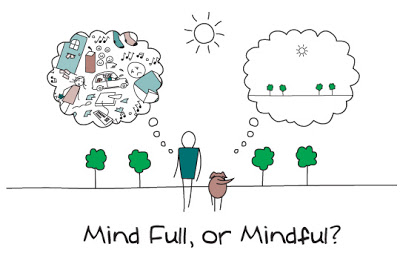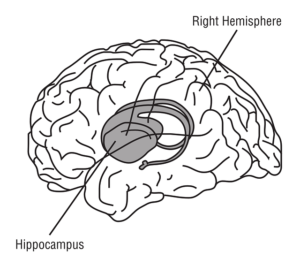Mindfulness and Psychotherapy have a huge amount in common and when combined, the therapeutic benefits can be very powerful.
So what exactly is Mindfulness and how can it help with psychotherapy sessions?
Mindfulness, in my opinion, is no longer a new buzzword. It’s not a dazzling new “thing to do” but a powerful activity and way of life that is, to some extent, familiar to many. Whether you practice already, have flirted with the odd meditation here and there or have just heard it but not yet looked in to it, the concept of Mindfulness has reached quite far.
For those of us who have heard of it but not yet looked in to what it may involve or how it can help us, a common question is “Mindfulness? That’s about meditation right?”. And yes, those people would be correct. There may be meditative elements to Mindfulness BUT it is so much more…….
In this blog post I shall attempt to offer my view of what Mindfulness is to me and how I believe it can complement your psychotherapy sessions.
Mindfulness: More Than A Good Idea
Imagine there was a pill you could take on a daily basis to improve your concentration, increase your awareness, improve your outlook on personal relationships and reduce your general levels of stress.
You’d take it right?
If it was this simple then it seems like a no-brainer. While this may seem like wishful thinking, the practice of Mindfulness really is as simple as doing something on a regular basis. It is a way of strengthening parts of our brain in such an incremental and beneficial way. There is scientific evidence to prove that the act of controlled breathing learned through Mindfulness has a neurophysiological effect. As read in Medical News Today, even 25 minutes of Mindfulness can improve brain function and boost energy levels.
So what else can Mindfulness help with?
All too often we may get in the car to go do our usual food shop on a Thursday morning, arrive at the supermarket and not really have any strong memories about the drive we’ve just done. How many times can we say we’re not paying attention? For many people this is pretty standard and happens a lot. But in doing so we are missing out on being in the moment. We are missing out on noticing and being curious to ourselves and our world around us. We are not acknowledging the annoyance at stubbing our toe and we are inadvertently carrying that annoyance with us til we get a chance to blurt it out at another time. Acting mindfully supports us to recognise at the moment of stubbing our toe we are annoyed and to pay attention and notice that has happened. This seemingly simple act of noticing on a regular basis will support brain function and strengthen neurological pathways.
A straightforward way to explain how Mindfulness can help us is to say that it is a fundamental life skill and involves the human ability to be fully present. It helps us to be more aware of where we are, what we are doing and supports us to be able to respond appropriately at any given moment. It is a skill that helps us to see that getting really annoyed after we stub our toe does not then make it ok to take our annoyance out on the next person we speak to. Mindfulness supports us to react appropriately to the next person we speak to and to notice that we are also annoyed that we stubbed our toe. The ability to separate experiences, emotions and to react in an appropriate way on a moment to moment basis is an amazing life skill.
Mindfulness and Curiosity
When we practice mindfulness we bring a sense of curiosity to our experience as it unfolds, moment by moment. We observe and pay attention to what is happening in our minds and bodies, becoming more present and available to ourselves and to others. We are also bringing all parts of our brain together in an integrated way that promotes and facilitates positive well being.
In this way, Mindfulness and Psychotherapy are inextricably linked.
Mindfulness and Psychotherapy
In psychotherapy a person has the chance to make sense of what is going on for them. Mindfulness trains our brain to be more aware of what is going on around us. When we have an increased capacity to be more present, we worry less about the past and are less anxious about the future. Mindfulness teaches us to be curious about the present and to be compassionate and warm towards it. The process of cultivating moment to moment awareness has such amazing restorative benefits. It is proven to help with many psychological difficulties such as depress, anxiety, stress, substance-abuse etc. The curative process transcends diagnosis and is a key component of successful psychotherapy.
Mindfulness is becoming recognised as a powerful tool in psychotherapy, and there are a growing number of therapists who are trained in both modalities. “Mindfulness-Based Transactional Analysis” also known as MBTA, is one such area of growth. MBTA is an approach that takes into account Mindfulness meditations with the theoretical concepts of Transactional Analysis.
Many people are seeing positive results when the two approaches are combined. In as far back as 2007, in a survey of 2,600 therapists, 41.4 percent of respondents reported they were practicing some form of “mindfulness therapy” with their clients.
Within my practice I may often incorporate aspects of Mindfulness. I work with clients to explore options for bringing Mindfulness into daily life outside the therapy room. If you are interested in finding out more get in touch for a chance to talk more about how I work and to find out more about Mindfulness and Transactional Analysis Psychotherapy.
Next week’s blog post focuses on reasons Psychotherapy and Mindfulness work well together.



 If we go lower into the brain, we find the limbic system, this is the place where we regulate emotions and assess potential threats. There may be emotional communication going on, but it’s not happening right at the top of our brains, at a higher level. The hippocampus and amygdala are two important structures within the limbic system.
If we go lower into the brain, we find the limbic system, this is the place where we regulate emotions and assess potential threats. There may be emotional communication going on, but it’s not happening right at the top of our brains, at a higher level. The hippocampus and amygdala are two important structures within the limbic system.
